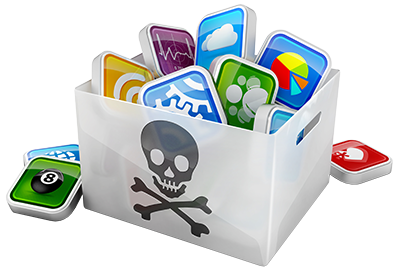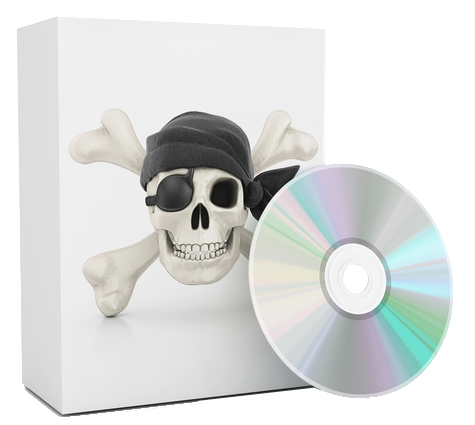How Stolen Software Drowns Your Profits
Software piracy is defined as the illegal use, copying, or distributing of software. This applies whether the piracy is done “innocently,” by sharing software across extra computers at home or work, or by defrauding software makers as part of a $100 million global software piracy ring. The Business Software Alliance (BSA) estimates 36% of all software in use is stolen.

Types of the more common software piracy techniques include:
-
Soft-lifting - Borrowing and installing someone else’s copy of a software application
- Client-Server Overuse - Having more users of the software than are licensed
- Internet Piracy - Downloading software that has had security features removed and/or has been otherwise illegally acquired
- Hard-disk Loading - Installing and selling unauthorized copies of software on used or new computers
- Creating Derivatives of Source Code – Copying of source code (no comma here) and making a series of minor modifications, such as changing variable names or function sequences, with the intent of making copying harder to catch.
You continue to raise your security, yet nothing seems to help. Counterfeiters, OEM un-bundlers, corporate licensee under-reporting, and Internet piracy keep eating away at sales and margins. Ciphers are broken. Activation codes are circumvented. Channel “partners” keep pushing boundaries. What’s a software company to do? Constant upgrades tend to polarize the legitimate clients and increase operating costs.
Software theft is a serious crime. For software pirates who profit mightily from the illegal copying and selling of software, it’s also serious business. This means software producers are taking a big hit, along with law-abiding consumers who likewise pay in the form of higher software prices.
If you’re a software developer or publisher, others are robbing from your company each time they illegally use, copy, or distribute your product. So at times, litigation is the only way to send a message.

Piracy Prevention: Would-Be Pirates Get the “Heave-Ho”
Bringing software pirates to justice is hard, but not impossible. If pirates are ignoring your efforts to stop the stealing your ideas, inventions and innovations, it’s time to turn to experienced litigators who can take over your fight and get results.
At Nexio Law Firm, we stem the tide of piracy through a streamlined process. At the end of the day, software pirates are left with one of two options: Pay heavy penalties for unauthorized access to your work (in stances of code breaking) and/or copyright infringement.
Copyright Registration and Pre-Litigation Counseling
Many software developers think patent protection is their only option. This is, in fact, not true. Copyrights can sometimes provide alternate or supplemental rights to patents. Patents tend to cover the utility of the software or the problem and the solution the software provides. Copyright, on the other hand, helps protect how code is written. It’s also much easier to shut down a piracy using a copyright litigation (and in some instances trademark litigation). But to do so requires copyright registrations over the source code, UI, and/or documentation as well.
We know how to help software developers protect their work and help set-up systems to allow for regular acquisition of rights. We are also well versed at counseling developers with pre-litigation strategies and best practices in the event of piracy.
We’re here to Help
The attorneys at Nexio Law Firm are committed to helping our clients achieve their objectives. We can be reached at (949) 478-6830 or complete the contact form and we’ll be in touch soon.